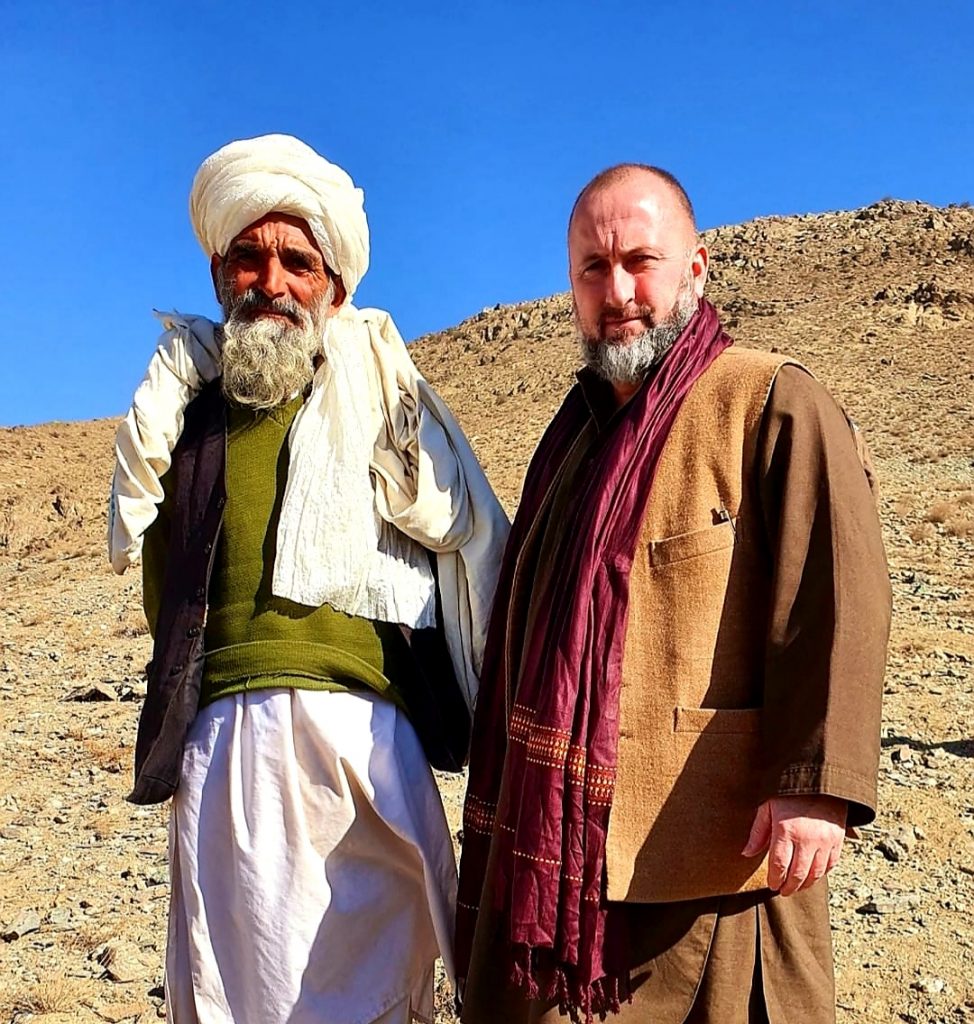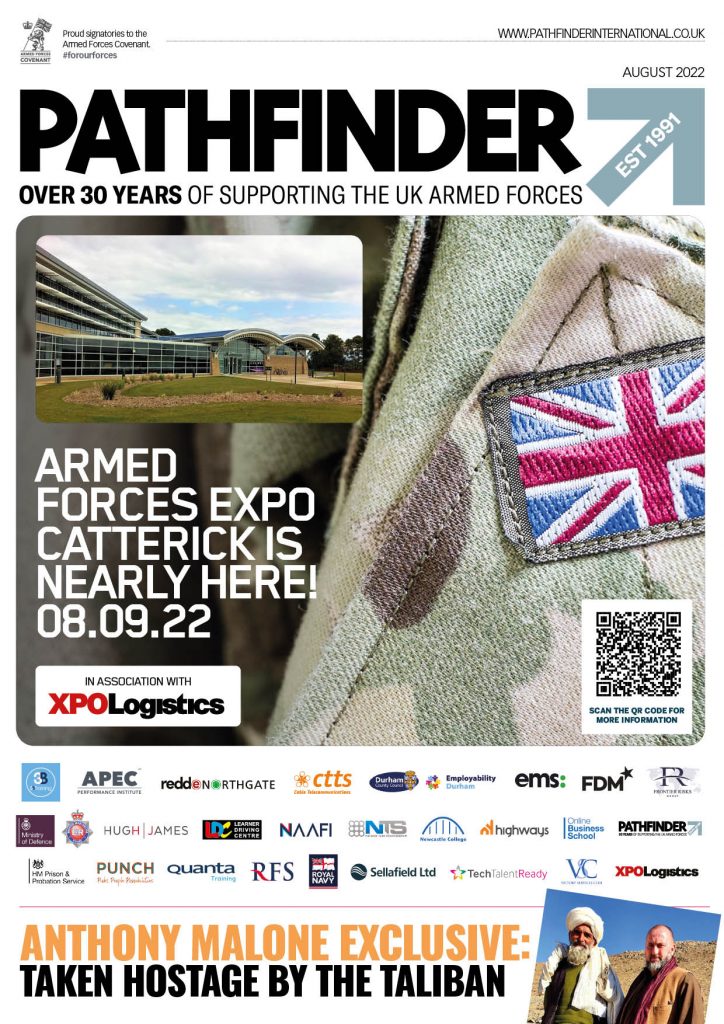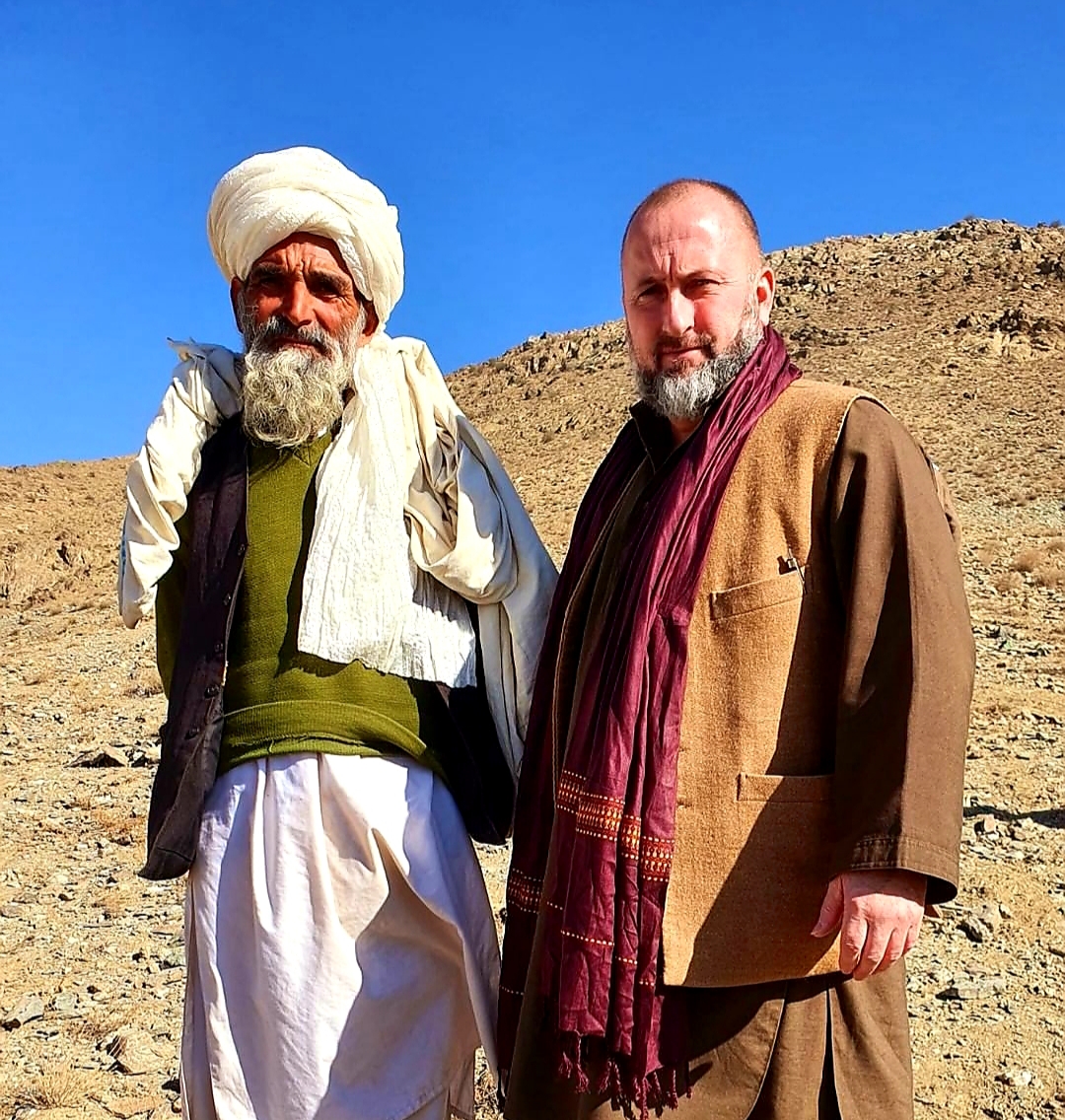Pathfinder International magazine has been given exclusive access to speak to Anthony Malone, a UK Veteran and former Para, to hear first hand about his experiences on returning to Afghanistan in 2021, to help aid stricken UK families and British passport holders out there, following the resurgence of the Taliban in country.

Anthony Stephen Malone, author, businessman and former British military veteran, returned to Afghanistan to help with the evacuation of British passport holders and vulnerable people who had previously assisted UK Armed Forces in Op Herrick last October. He personally helped to get hundreds of vulnerable people and children to safety, following the takeover of the country by The Taliban two months previous.
Malone was arrested by the Taliban in Kabul on December 13, 2021. Malone was never formally charged with any offence and was held as a hostage for political gain for 190 days. He was finally released with four other British citizens, late last month. Malone’s assessment of the Taliban is balanced but some might say harsh as you might expect.
Now back in the United Kingdom with his fiancee and two daughters, Anthony shows a few signs from his hospital visits due to his six months incarceration by the Taliban. Smiling and confident, Malone, 50, is now ready to speak about the experience “There is no point in being bitter,” Malone notes. “It was a typical Afghan situation. Things take a long time. For me, the worst was the beatings and boredom, basically a waste of time. I will always turn a negative into a positive.”
Malone, who holds a British passport, has spent more than two decades in and out of Afghanistan, much of the time working as a special adviser to US and UK governments, Sky News and other major broadcast news networks.
Malone has also specialised in conflicts including Somalia, Iraq, Syria, Lebanon, West Africa, Colombia and many other hostile environments.

Many Afghan experts and scholars, including American development and Goverment/military specialists, have long regarded Malone as one of the most insightful Western Advisors to have worked in the country. He is also widely known amongst the international community for his work to help military veterans through his International organisation “Patriot”. He is guest speaker and podcast host of the “Patriot Show ” and Author of four books including; Honour Bound Rogue Warrior parts one and two; United Nations Faces of Hope.
For the first time and over 2 issues and including some online extra articles, Anthony speaks further in depth than ever before for Pathfinder.
“The Taliban Government is fractured beyond belief” Anthony points out from the start of the conversation.
“It is the worst I have ever seen it, it’s even worse than what it was back in 1999/2000 when all the infighting occurred. There are major power struggles going on at the moment, major problems between the Taliban and the Haqqani’s. To give an example, just a building we were in, basically every floor was run by a different tribe and that was just one building to use as an example, so you can imagine what the rest of Kabul is like and then expand it to cover the whole of Afghanistan, you can see the regime has some serious clear issues.
Al Qaeda have been in Afghanistan for years and the leader we know has moved up north to Kabul as well and so it has made things a little bit of a weird situation at present.
Obviously, I am definitely not pro-Taliban, but I am pro-Afghanistan, purely for the ordinary people”, Anthony makes clear.
We go back to the beginning and as the rest of the world watched on in horror at the unfolding situation as hundreds of thousands of desperate Afghans and foreign nationals tried to flee the war ravaged country, following the end of Western Allied Forces in the country and the return and resurgence of the Taliban.
The UK’s response was Operation Pitting, in which over 1,000 troops airlifted over 15,000 people, of which 5,000 were British Nationals and 8,000 were Afghans considered vulnerable to persecution to the Taliban, due to former roles in assisting UK forces during Operation Herrick. Despite the sterling efforts of British troops in a 15-day period, thousands of UK passport holders remained behind in Afghanistan, following the departure of the final UK military flight.
“Before the evacuation, I was retired, I was not involved in anything anymore, I was doing Veterans work in the UK and the US and I wasn’t going to get involved in it. But about a couple of months before the official evacuation, I started receiving a lot of phone calls, a lot of satellite phone calls from interpreters, one was part of my team out there, wanting help to get out of Afghan. So I was looking to try and help in some way get vulnerable families, high value targets out of Afghanistan for about two months before it became big news with the evacuation.
Then, I started getting requests asking for help during the evacuation and immediately after as well. I worked alongside the British Foreign Office, British Government departments, American agencies to try and move as many people as what we could.
It is alright doing this by remote control but Afghanistan is more of a social environment context – you gotta be there in essence to sort things out. So I spoke to a colleague of mine and we organised transport. We got on a plane into Uzbekistan, where we entered Afghan from.
One of the main reasons why I got back involved with this was the fact I am a military veteran and it just didn’t fit well with us abandoning so many people. It was actually a couple of Colonels, even a couple of Generals, can you believe it, Colonels and Generals (from the Afghan Army) saying “Anth can you get us out?” And I am trying to explain, “I am just me, I am retired now, I am not operational in any aspect anymore”

But the situation gets clearer that this people stuck out there are getting screwed over and the pressure is on. And a few of these people, I know them well and I know they have families.
It was one of those situations, where I sat my family down and said “I can not NOT help here.” You try saying no to a Brigadier General on the other end of a phone who is absolutely petrified – there just wasn’t really an option but to help.
So, I spoke to my family and said “I am going to go in as a humanitarian worker under my real name”, as there is a lot of the Haqqani’s I know well anyway, so as soon as I arrive in country, I can speak to them to provide me with a bit of top cover.
Unbeknown to me, I didn’t know there was fighting between the Haqqani’s and the Taliban, but I headed into Afghanistan still.
We literally went in to help as many people as we can, we will help a few families and get them out and go from there. But the average Afghan family is not like British families. Afghan families are like 16 or more members, each immediate family. So if you’re helping 10 families those numbers will soon add up.
We went into Jalalabad into a meeting there to meet 4 people. We walked out of that meeting with evidence of 74 British families hiding and that was just in Jalabad, not far from Kabul and I confirm this as I have the proof online of each member of these families holding their British passports. This is just one example!”
Read the second part of Pathfinder’s exclusive in depth interview with Anthony in the September issue of Pathfinder as well as additional online articles in the lead up to this issue.
Anthony was speaking to Mal Robinson.
Read the August 2022 issue of Pathfinder here!


